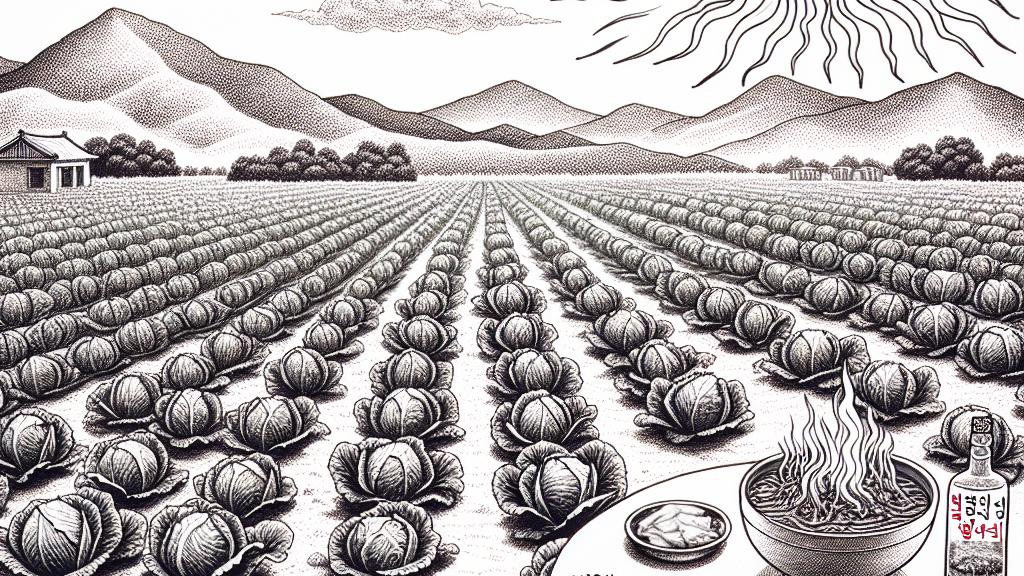The Great Kimchi Crisis: Is Global Warming Stealing Our Cabbage?
Overview
- Napa cabbage, essential for kimchi, is threatened by climate change, impacting South Korea's culinary heritage.
- Extreme weather, rising temperatures, and pests jeopardize cabbage production, leading to supply shortages.
- The kimchi industry faces soaring prices and cultural challenges, urging a need for adaptive agricultural strategies.

The Importance of Napa Cabbage in South Korea
Napa cabbage is foundational in South Korean cuisine, particularly for making kimchi, a dish that is a staple in nearly every household. This fermented vegetable dish not only accompanies meals but encapsulates the essence of Korean culinary culture and is a symbol of togetherness and preparation. As climate change intensifies, however, the reliance on napa cabbage has become precarious. Historically, napa cabbage requires a specific temperature range between 18°C to 21°C for optimal growth. Unfortunately, the average summer temperatures are increasingly exceeding this range, significantly affecting the crop's yield and quality, potentially leading to a future where growing napa cabbage is no longer feasible across much of South Korea.
The Economic and Environmental Impact of Climate Change
The landscape of South Korean agriculture has been drastically altered by recent climate events, including record-setting rainfall and destructive typhoons that have amplified in both frequency and severity due to climate change. In the most recent seasons, these extreme weather patterns have ruined vast cabbage fields, resulting in price increases of more than 60%. This has created a ripple effect where many families now find it increasingly challenging to uphold the traditional practice of 'gimjang'—the season when families gather to produce kimchi for the winter. Moreover, companies like Daesang and CJ CheilJedang find themselves grappling with supply shortages that threaten production capabilities, underscoring the broader economic implications of a dwindling napa cabbage supply.
Innovative Solutions and the Future of Kimchi
In response to these pressing challenges, stakeholders including farmers, scientists, and government agencies are actively pursuing innovative agricultural solutions. Scientists are working on developing resilient varieties of napa cabbage that can adapt to warmer climates and resist pests and diseases. The South Korean government has also initiated projects to enhance climate-controlled storage and improve irrigation practices to stabilize cabbage production. While these efforts show promise, many farmers express skepticism about the costs associated with new technologies and the potential compromise on taste. As conversations about preserving the integrity of this vital crop grow more urgent, the future of kimchi production illustrates a broader struggle for sustainability in a world increasingly affected by climate change, making it clear that immediate action is essential for safeguarding this cultural treasure.

Loading...